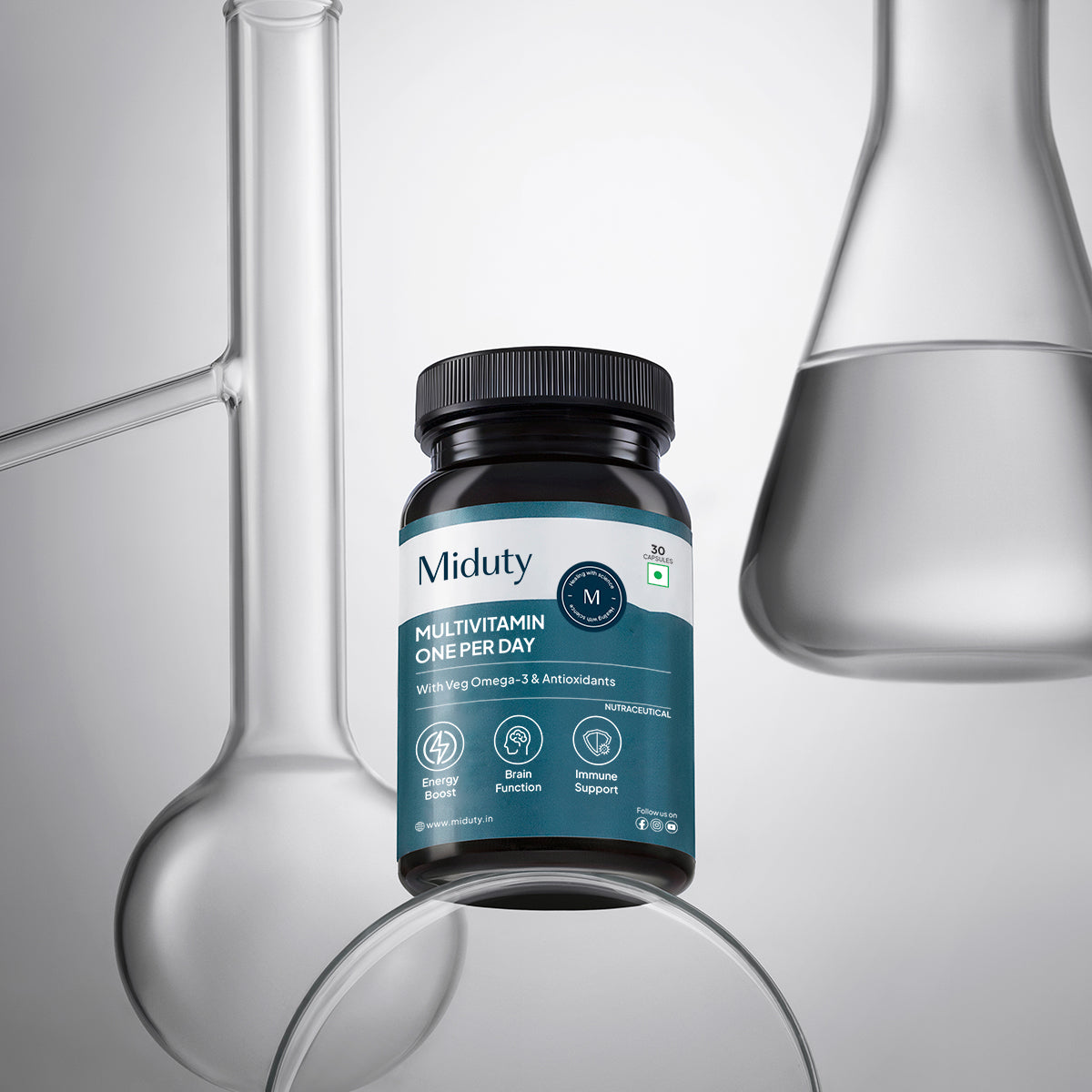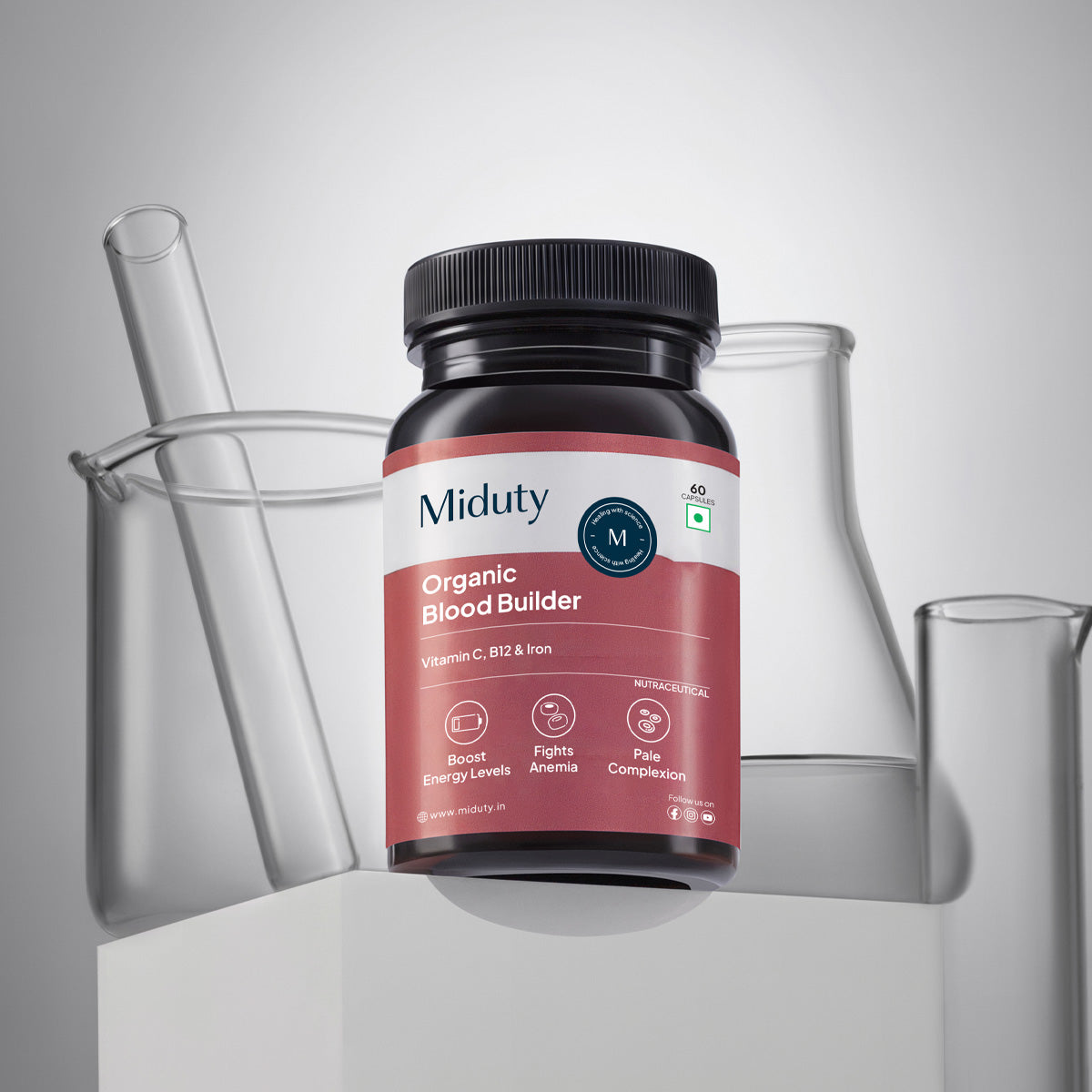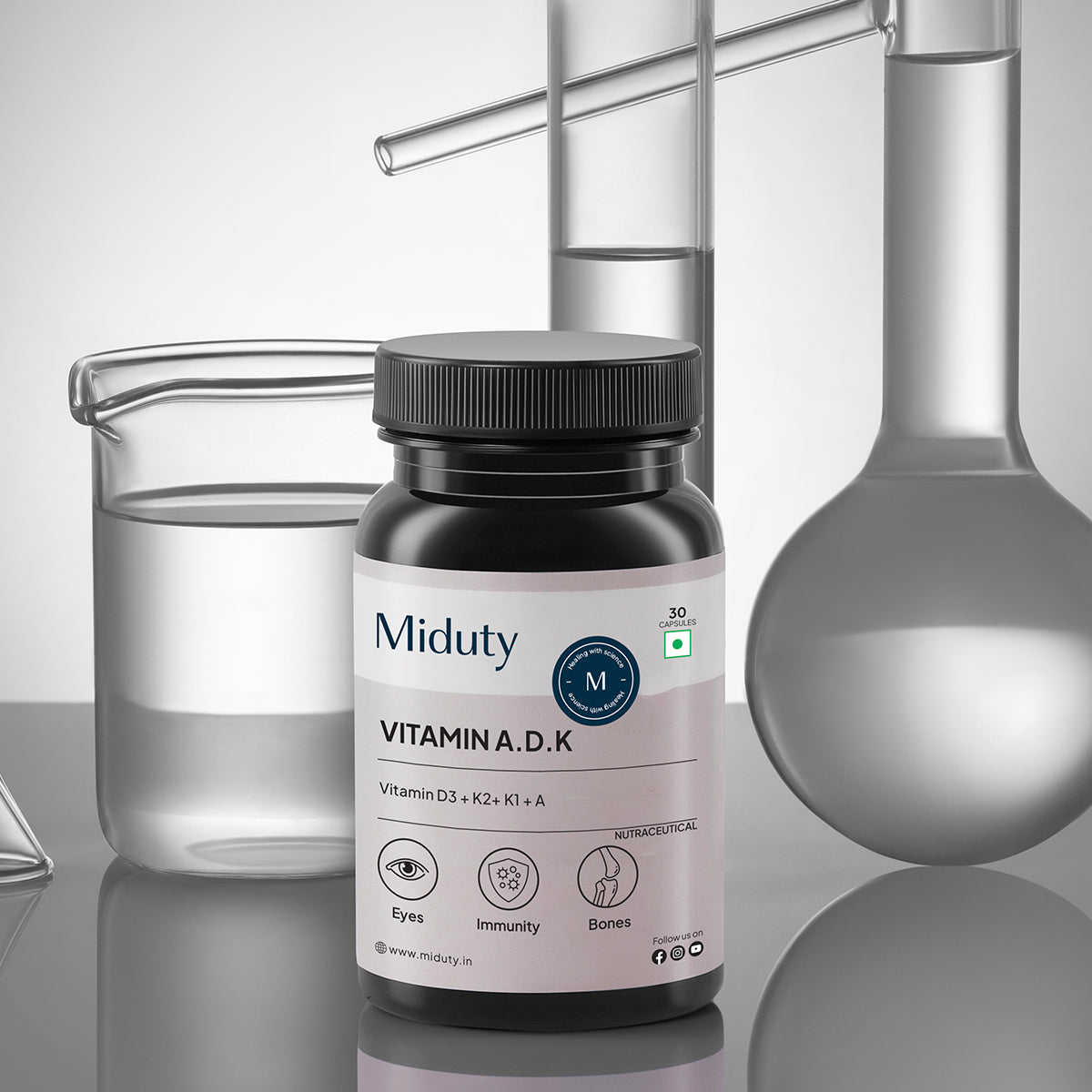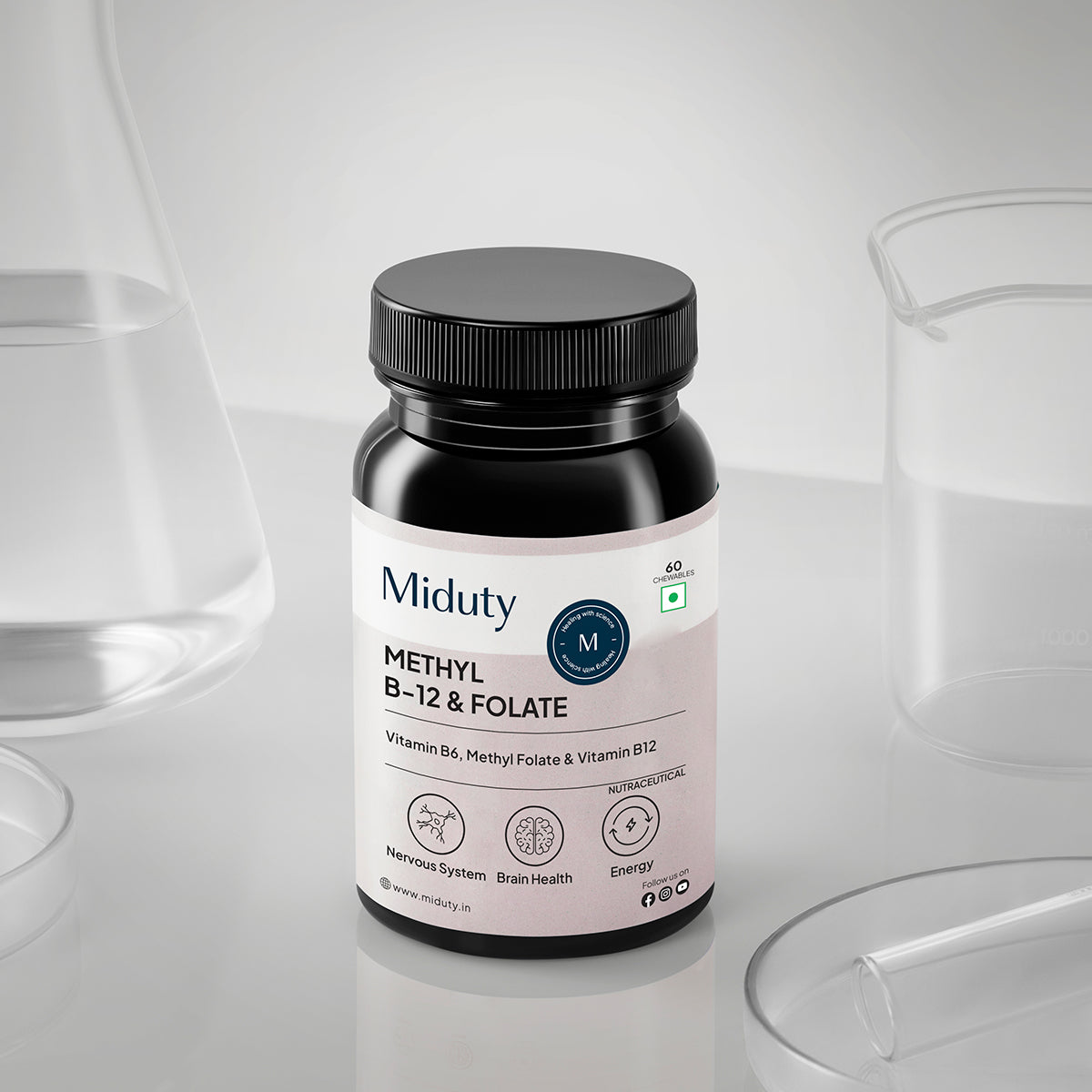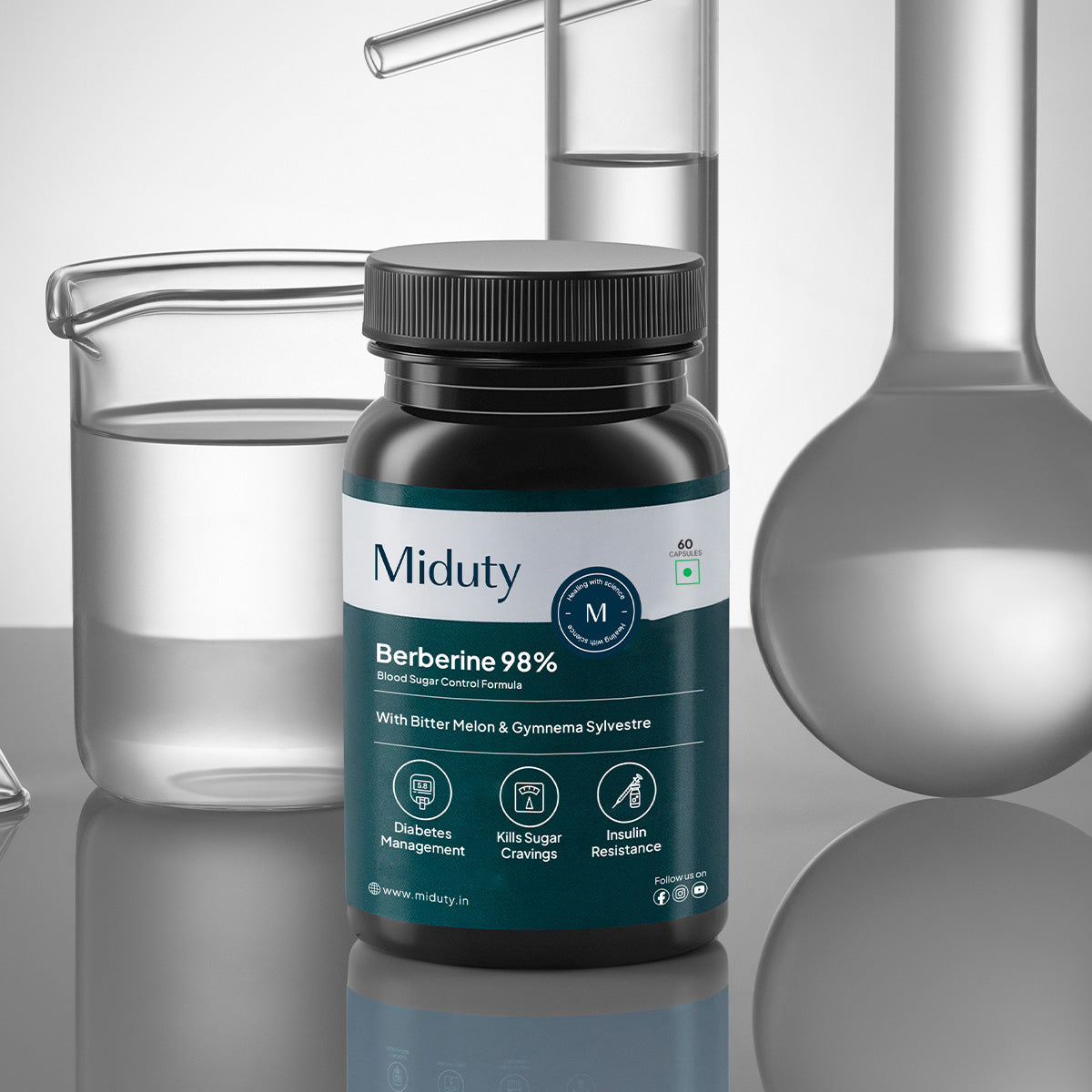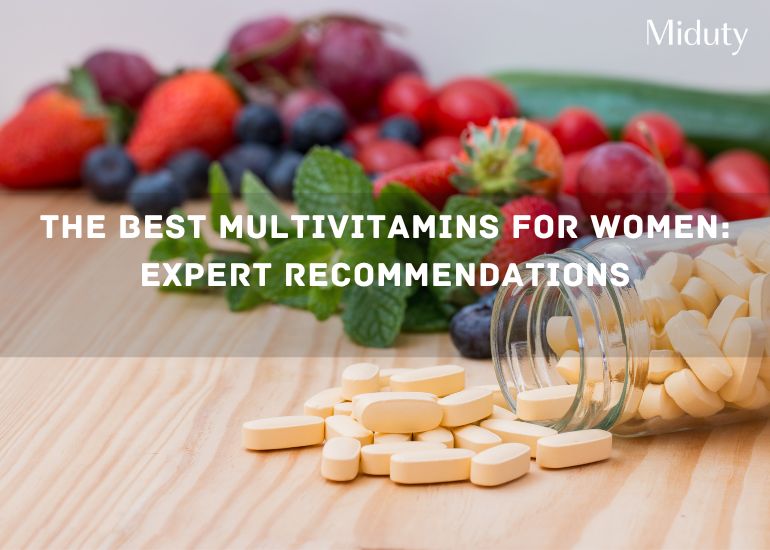
The Best Multivitamins for Women: Expert Recommendations
Are you a lady determined to live a happy and active life? Then you've arrived to the right location! In a society full of unending duties and stressful schedules, it is essential for women to prioritise their health. And one important component of obtaining optimal health is to make sure that your body receives all of the critical nutrients it requires.
That's where multivitamins come in, as a convenient and effective approach to fill nutritional gaps. But, with so many alternatives, how can you pick the best multivitamin for women?
My close friend used to be the epitome of health-consciousness. She adhered to a well-balanced diet high in nutrient-dense foods and exercised on a regular basis. Despite her efforts, she found herself continuously lethargic and out of energy.
She came to me for help because she was frustrated by her unexplainable fatigue. I suggested she try introducing a multivitamin into her daily regimen. She was sceptical at first, but she decided to give it a chance in the hopes of seeing some progress.
She was surprised to see a tremendous difference just a few weeks of beginning her multivitamin routine. Her energy levels skyrocketed, and the constant weariness that had tormented her evaporated. She felt like a completely different person all of a sudden.
Don't worry, we've got you covered! In this blog, we'll delve into the world of multivitamins and reveal professional suggestions to help you select the best combination for your specific needs.
How Multivitamins are Helpful for Women?
Women benefit from multivitamins because they supply critical elements that they may not get from their diet alone. Even with a balanced diet, getting all of the necessary vitamins and minerals in the appropriate amounts can be difficult. Multivitamins are an easy way to fill these dietary deficits.
In this section, we will delve into the specific nutritional needs that women have and how they differ from those of men.
Unique Nutritional Needs of Women
Women have different dietary needs than men due to biological and physiological variables. In this section, we'll go over these unique dietary requirements and emphasise the importance of numerous vitamins, minerals, and important nutrients in women's health.
Hormone balance: Women's nutritional requirements are intimately linked to hormonal balance. Certain nutrients are necessary for hormone production, metabolism, and control.
Vitamins B6, E, and magnesium, for example, are crucial for balancing hormone levels and reducing symptoms related with hormonal imbalances, such as PMS (premenstrual syndrome).
Reproductive Health: Women's reproductive health necessitates certain nutrition to promote fertilisation, pregnancy, and lactation. The nutrients folate, iron, and calcium are very crucial.
During early pregnancy, folate is required for the healthy development of the foetus, whereas iron is required to prevent anaemia and sustain the increasing blood volume.
Calcium promotes the formation of the baby's bones and teeth and aids in the maintenance of the mother's bone density.
Bone Density: Women are more likely than males to develop osteoporosis, a disorder characterised by decreasing bone density and a greater likelihood of fractures.
Adequate calcium, vitamin D, magnesium, and vitamin K intake is critical for a woman's bone health throughout her life, especially throughout adolescence, pregnancy, and menopause.
Overall Well-Being: Overall vitality and well-being: Women may have specific nutritional requirements to sustain their overall vitality and well-being. Energy generation, cognitive function, immune support, and good ageing all require nutrients such as omega-3 fatty acids, antioxidants (vitamins C and E), and a variety of B vitamins.
Key Nutrients for Women’s Health
To maintain optimal health and well-being, women require a balanced intake of key nutrients that cater to their specific physiological needs. In this section, we will explore the essential vitamins, minerals, and other nutrients that play a vital role in women's health.
1. Iron: Due to monthly blood loss, women require more iron than men. Iron is required for the formation of haemoglobin, which transports oxygen in the blood. An iron deficiency can result in tiredness and anemia.

Dietary Sources of Iron include Spinach, Dal, Fenugreek (Methi), Pomegranate, Sesame Seeds (Til) and more. If diet alone isn’t helping, you can take an Organic Blood Builder supplement to maintain your iron levels.
2. Calcium with Vitamin D: While women take calcium directly whenever they are calcium deficient, it should not be that way.Taking calcium without adequate vitamin D could interfere with absorption and utilisation. Without sufficient vitamin D, the body could have trouble absorb calcium adequately, potentially leading to shortages and an increased risk of illnesses such as osteoporosis. Women are more likely than males to develop osteoporosis, a disorder characterised by low bone density. Calcium and vitamin D are essential for bone health and the prevention of osteoporosis.
Foods Rich in Calcium and Vitamin D include Yogurt, Green Leafy Vegetables such as Spinach, Methi and more.
3. Folate and B Vitamins: Folate is essential for women, particularly during pregnancy, because it aids in the prevention of neural tube abnormalities in the growing foetus. Women of reproductive age should take enough levels of folate, either through diet or supplementation.
B vitamins, such as B6, B12, are essential for maintaining energy levels, supporting brain function, and contributing to red blood cell synthesis. These vitamins are vital for overall health and may have additional benefits for women's health.

Foods Rich in Vitamin B include Whole Grains, Lentils, Legumes, Green Leafy Vegetables such as Amaranth and Methi.
While choosing multivitamins, you should be careful because the majority of the supplements in the market contain folic acid whereas our bodies require folate.
4. Omega-3 Fatty Acids: Omega-3 fatty acids, notably EPA and DHA, have been shown to benefit heart health, cognitive function, and inflammation reduction. They may also help to maintain hormonal balance and relieve menstruation discomfort.
Foods Rich in Omega 3 Fatty Acids are Flax Seeds, Chia Seeds, Pumpkin Seeds, Mustard Greens (Sarson ka Saag), Fish such as Salmon and Tuna and more.
5. Antioxidants: Antioxidants, such as vitamins C and E, help protect cells from free radical oxidative damage. These chemicals may benefit skin health, immunological function, and the ageing process in general.
Foods Rich in Antioxidants include Turmeric, Amla, Green Tea, Pomegranate and more.
6. Zinc: Zinc is a significant mineral that is essential for the health of women. It supports a number of bodily processes, including immune system health, growth and development. Teenage girls in particular need Zinc because it helps with your general development and progress at this point of life.
The creation of certain hormones, such as progesterone and oestrogen, is one way zinc is beneficial for girls. These hormones are crucial for maintaining reproductive health and regulating the menstrual cycle. A regular and normal menstrual cycle can be maintained with adequate zinc levels.
Foods rich in Zinc include Legumes, Nuts and Seeds like Pumpkin Seeds, Sesame seeds are high in Zinc.
Why Dietary Changes Alone Can’t Help in Filling Up Deficiency?
While a well-balanced diet is important for overall health, there are various reasons why dietary modifications may not always be sufficient to meet all of your nutritional needs.
Furthermore, aggressive farming methods and depletion of soil have resulted in a decrease in crop nutritional content. Fruits, vegetables, and cereals may contain fewer vitamins and minerals than in the past.
You must be thinking if diet alone can’t help then what can you do to fill in the nutritional gaps?
Don’t Fret! I’ll tell you.
Multivitamin supplements can be an easy and dependable approach to supplement your diet and ensure proper nutritional consumption. They are meant to contain a combination of vital vitamins and minerals, and are often tailored to specific groups of people, such as women, in order to fulfil their special needs.
What Are the Best Multivitamins for Women?
When it comes to selecting the best multivitamins for women, it's necessary to examine things more than the variety of products on the market. While many supplements promise to suit your nutritional needs, some factors should be considered before making an informed decision.
Bioavailability and absorption are critical considerations. In terms of how well nutrients are absorbed and utilised by the body, not all multivitamins are made equal.
Choosing high bioavailability multivitamins guarantees that the minerals and vitamins are easily absorbed and can give the intended health benefits.
Furthermore, the origin and quality of the ingredients are important. Natural substances obtained from whole foods or organic sources are frequently more bioavailable and well-tolerated.
With Miduty OnePerDay, you can say goodbye to your health problems. It is meticulously crafted with special ingredients and contains a blend of Zinc, Omega-3, Folate and Antioxidants for better well being.
Join the countless individuals who have already experienced the remarkable benefits of Miduty OnePerDay. Don't miss out on this extraordinary opportunity to revitalize your health.
Final Words
Finally, as a woman, it is critical to prioritise your health in order to live a happy and active life.
Multivitamins are essential for ensuring that your body receives the nutrients it requires to thrive. You can bridge nutritional gaps in your diet with the correct multivitamin and experience astonishing benefits.
Women have particular nutritional demands that can be satisfied through the use of multivitamins, ranging from hormone balance to reproductive health, bone density, overall well-being, and vital minerals.
When choosing the finest multivitamin for you, keep in mind elements such as bioavailability, absorption, and component quality.


